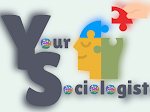In the ever-evolving landscape of education, a powerful tool is gaining prominence – Social-Emotional Learning (SEL). It's not just about textbooks and exams; SEL focuses on developing emotional intelligence, self-awareness, and interpersonal skills. This approach has a profound impact on students, equipping them not only with academic prowess but also with the tools to navigate the complexities of life. At its core, Social-Emotional Learning is about more than just academic achievement. It involves nurturing skills that are essential for personal and social success, such as self-awareness, self-regulation, and responsible decision-making. By incorporating SEL into education, we empower students to excel not only in the classroom but also in their relationships and future endeavors.
The classroom becomes a dynamic space when SEL is integrated into teaching practices. Students engaged in SEL activities show improvements in concentration, problem-solving, and collaboration. These skills extend beyond the academic realm, providing a foundation for emotional resilience and positive mental health. From the early years of education to adolescence, SEL interventions have proven effective. Teaching children to understand and manage their emotions lays a crucial groundwork for their emotional well-being as they grow older. SEL becomes a guide for students, helping them navigate challenges and build the foundation for future success.
As students transition from school to the broader world, the relevance of SEL becomes even more apparent. In workplaces, effective communication, teamwork, and emotional resilience are highly valued. Employers recognize the importance of SEL in creating a positive work environment, fostering job satisfaction, and enhancing overall productivity.
SEL doesn't have an expiration date; its impact is lifelong. The skills developed through SEL help individuals navigate the complexities of adulthood, providing a toolkit for handling personal and professional challenges. Whether facing setbacks or celebrating successes, the resilience cultivated through SEL becomes an invaluable asset.
Implementing effective SEL programs comes with its challenges. It requires a thoughtful approach, considering cultural sensitivities and tailoring interventions to meet the unique needs of students and communities. Recognizing the diversity of experiences ensures that SEL remains an inclusive and accessible tool for personal development.
Here are some examples illustrating the impact of Social-Emotional Learning (SEL) in education:
- Self-Awareness in the Classroom: Example: Students engage in activities that prompt self-reflection, helping them recognize and understand their own emotions. For instance, journaling or class discussions on personal experiences can enhance self-awareness.
- Conflict Resolution Skills: Example: Incorporating SEL lessons on conflict resolution equips students with the ability to navigate disagreements constructively. Role-playing scenarios or group discussions can simulate real-world situations, teaching students how to express themselves and understand others.
- Empathy Building: Example: Reading literature that explores diverse perspectives or participating in community service projects helps students develop empathy. Understanding others' experiences fosters a sense of compassion and connection.
- Teamwork and Collaboration: Example: Group projects that require collaboration encourage students to communicate effectively, share ideas, and appreciate the strengths of their peers. This not only enhances academic learning but also builds social skills.
Social-Emotional Learning is a beacon in education, guiding students toward a more connected and compassionate future. It goes beyond academic achievements, nurturing skills that are vital for personal and societal success. As we prioritize the holistic development of students, let Social-Emotional Learning be a cornerstone in shaping individuals who not only excel academically but also contribute positively to the world around them.







0 Comments